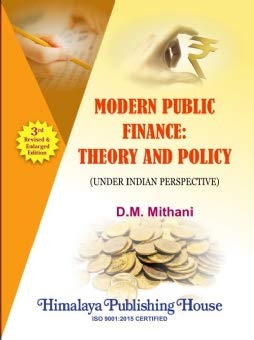Modern Public Finance: Theory and Policy
Availability :
In Stock
₹ 468.75
M.R.P.:₹ 625
You
Save: ₹156.25 (25.00% OFF)
(Inclusive
of all taxes)
Delivery:
₹ 0.00 Delivery charge
Author:
Mithani, D.M.
Publisher:
Himalaya Publishing House
Edition:
3rd Edition
ISBN-13:
9789352994885
Publishing Year:
2021
No. of Pages:
488
Language:
Unknown
Book Binding:
Paperback











